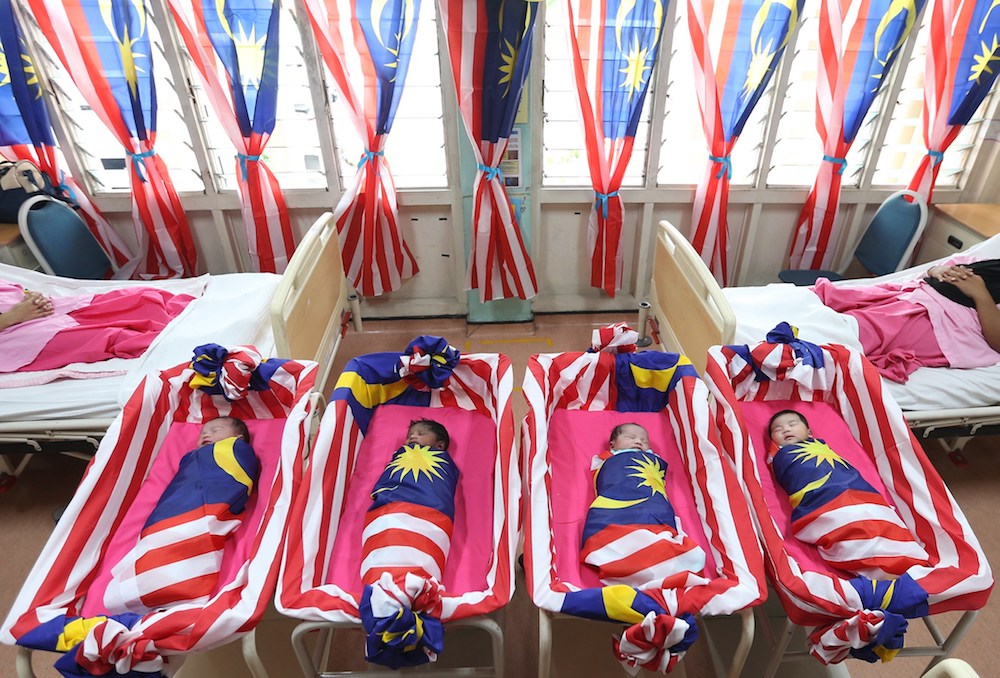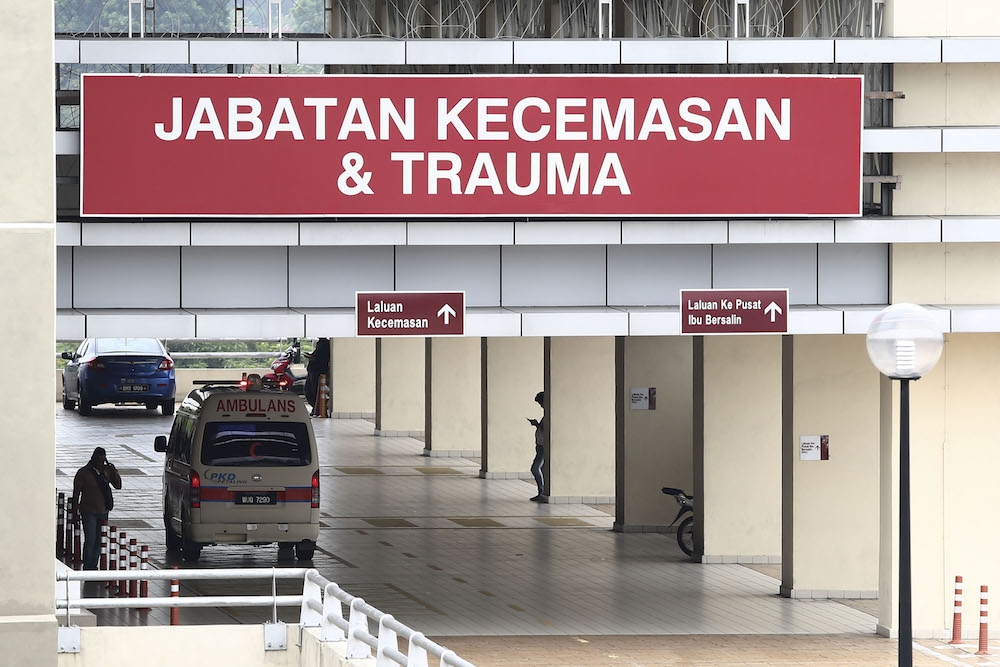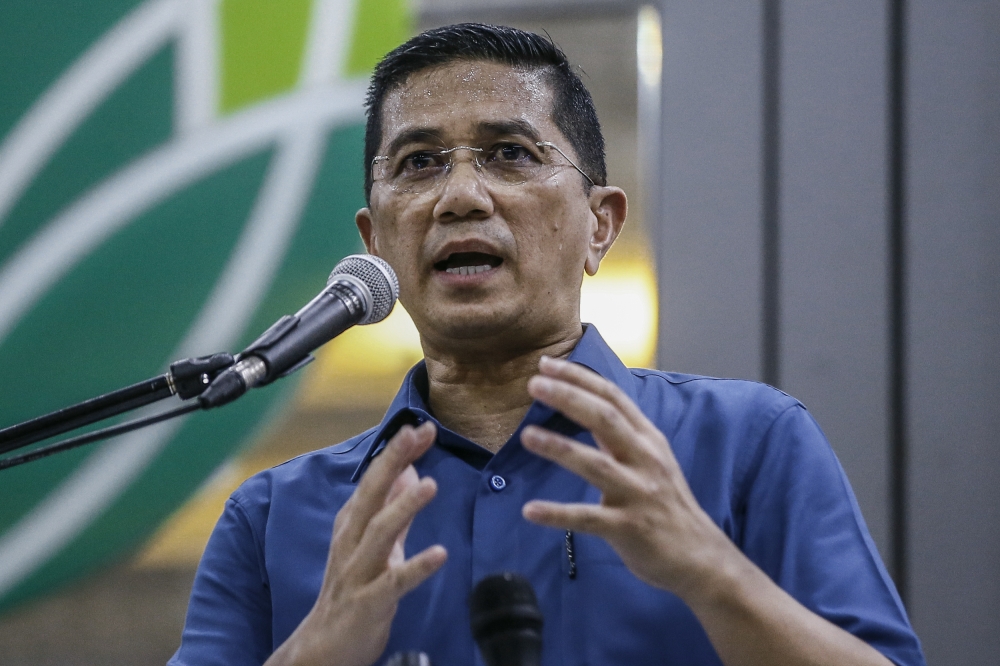KUALA LUMPUR, June 4 — The High Court in Sibu, Sarawak has recently decided that the government should remove “bin Abdullah” from the official records of the name of a child adopted in Sarawak, in consideration of the child’s best interests and in line with the adoptive Muslim parents’ wishes and request.
In the April 6 written judgment sighted by Malay Mail, High Court judicial commissioner Christopher Chin Soo Yin ordered that this child “should be named as intended by his parents”.
The judge ordered the Sibu district officer and the National Registration Department to amend the name of the child in the special register (or the official records of adoptions in Sarawak), certificate of adoption, birth certificate, by removing “bin Abdullah” from his name “in accordance to the wishes of his parents”.
In the interests of the child and for privacy reasons, Malay Mail is withholding the names of the adoptive parents as well as the adopted child. For ease of reference, the adoptive father and adoptive mother are referred to as A and B, while the child is referred to as C.
The judge’s order was for the child’s name in official government records to be changed from C A bin Abdullah to just C A without “bin Abdullah”.
In Malaysia, the words “bin Abdullah” or “binti Abdullah” for male and female names among Muslims are typically and primarily known as an indicator that a child was born out of wedlock, and had in the past been acknowledged by the courts as being a potential source of ridicule and stigma for such a child.
Below is a summary by Malay Mail of the High Court’s 30-page written judgment:
The facts of the case
In this case, the child was born in 2018, with his original name before adoption carrying the words “bin Abdullah”.
His adoptive parents adopted him in November 2018 at the Sibu District Office, Sarawak, with a certificate of adoption issued on the same day of adoption. The adoptive parents gave the boy a new name that also featured the adoptive father A’s name.
A birth certificate for the child was issued after the adoption, but the child’s new name in this document still carried the words “bin Abdullah”, namely C A Abdullah.
The adoptive parents had intended for the boy to be named C A instead of C A bin Abdullah.
Upon realising their alleged “oversight” where “bin Abdullah” still appeared in the child’s birth certificate, the parents in January 2020 filed a lawsuit against the Sibu district officer — through an originating summons — to ask for the removal of “bin Abdullah” from the child’s name in all official records. (Unlike other states in Malaysia, adoptions under Sarawak laws come under the district officer’s jurisdiction.)
While the Sibu district officer was named as the only respondent in the lawsuit, the lawsuit’s court papers were served on both the Sibu district officer and the director of the National Registration Department at the Sarawak state level, as directed previously by the High Court for the documents to be served to the appropriate authorities.
The Sibu district officer — as represented by the Sarawak State Attorney General’s Chambers’ Hisyamudin Roslan — on November 26, 2020 objected to the adoptive parents’ court bid to have “bin Abdullah” removed from official records of the child’s name.
The Sibu district officer had argued that there was no mistake or error in the special register (or record of adoptions), the certificate of adoption and the birth certificate, and that the Sibu district officer’s decision to name the child as it currently is was based on the Sarawak Mufti Department’s “guideline” on naming such as for those who are adopted or illegitimate (Garis Panduan Penamaan (Bin/Binti) Anak Tak Sah Taraf, Anak Angkat Dan Saudara Kita).
The Sibu district officer as the respondent in the adoptive parents’ lawsuit had also argued that the lawsuit should have been filed through a judicial review application, instead of through an originating summons.
Justice prevails over technicalities; civil court has jurisdiction over name change
In the High Court judgment however, the judge highlighted that Section 4(4)(a) and 4(4)(b) of the Sarawak state law Adoption Ordinance provides that originating summons should be used to apply to a High Court judge for a court order to correct any mistake or error in the special register or certificate of adoption.
The judge pointed out that the affidavit evidence and submissions for both an originating summons and judicial review application are substantially the same, and that the alleged procedural irregularity should not make the adoptive parents’ lawsuit invalid as the court should be more concerned with administering justice.
Citing various other court decisions which included observations that the overriding objective of justice should prevail over technicalities, the judge took into account the fact that this case concerned the interests of a child, and decided that the current lawsuit may be treated as though it is an application through judicial review without undue delay.
In examining the issue of whether the civil court has jurisdiction to hear this lawsuit involving a Muslim family, the judge agreed with the adoptive parents’ lawyer that this case only revolved around the name of an adopted child, and was not about trying to legitimise an illegitimate child.
The judge noted that the applicants in their lawsuit were merely asking for the court to assist in the removal of “bin Abdullah” in the child’s name in all official records and official documents.
“The religion of the child or of his adoptive parents, the legitimacy of the adoption and the procedural matters involving the adoption is not in question or in dispute at all,” the judge pointed out.
The judge noted that this lawsuit is regarding registration of births and deaths, which falls under the Federal Constitution’s List I of the Ninth Schedule or the Federal List. The judge noted among other things the chief justice’s judgment in the Rosliza Ibrahim case that Shariah courts have jurisdiction only over Muslims and when the subject matter is expressly listed in List II of the Ninth Schedule or the State List.
Citing the Federal Constitution and past Federal Court decisions including the case of Rosliza Ibrahim, the judge noted that the registration of an adopted child arises from the Federal List which the civil court has jurisdiction over, and said that the civil court is empowered under the Federal Constitution’s Article 121(1A) to hear this application as the matter involved does not fall under the Shariah courts’ purview.
Fatwa cannot apply retrospectively
Having concluded that the High Court has jurisdiction to hear and decide on this lawsuit, the judge then examined the third issue of whether a Sarawak fatwa or religious opinion issued by the Sarawak Islamic council (MIS) could apply retrospectively to the adopted child C’s case.
The judge noted that the Federal Court had in an 2020 case — involving a Johor Muslim child whose parents were successful in having “bin Abdullah” removed from the boy’s name in official records —- decided that a fatwa only becomes legally binding in a state if it is gazetted in the state gazette.
In this case involving the adopted Muslim child C, the Sibu district officer had sought to rely on both the Sarawak mufti department’s naming “guideline” for illegitimate or adopted persons and a February 2021 fatwa to justify the inserting of “bin Abdullah” in C’s name.
For the Sarawak fatwa known as “Fatwa on the naming of illegitimate child” dated on February 18, 2021 and gazetted on February 24, 2021, it was stated as having effect from February 1, 2021.
The fatwa states that an illegitimate child or a child born out of wedlock “must be given the name of Abdullah” after the child’s name. (Abdullah was explained in the fatwa to mean “servant of Allah” or servant of God.)
The same fatwa states that any illegitimate child that is adopted “should be given the name of Abdullah”, while also stating that the adoptive father’s name “shall not be a part” of the adopted child’s name or last name.
Among other things, the fatwa lists examples of what would be allowed for the names of illegitimate children and illegitimate children that were adopted, with “bin Abdullah” and “binti Abdullah” placed immediately after their personal names. It also lists examples of eight types of name arrangement featuring the adoptive father’s name that would not be allowed for illegitimate children who were adopted.
Sarawak state law Majlis Islam Sarawak Ordinance 2001’s Section 37(4) states that a fatwa that has been gazetted shall be binding on all Muslims in the state from the date specified in the gazette notification.
Citing two past decisions respectively at the Court of Appeal and the Federal Court which said that laws should not be interpreted or applied to retrospectively take away or impair a person’s rights, the judge said the Majlis Islam Sarawak Ordinance as a whole does not contain anything to suggest the Sarawak Islamic religious council has powers to issue a fatwa with retrospective effect.
The judge said the fatwa which was gazetted in February 2021 could not have retrospective effect, noting: “Henceforth, the gazetted fatwa shall and will only bind the naming of an illegitimate child for an application after the gazetted fatwa has come into force.”
The adoptive parents’ application through the lawsuit had started on January 16, 2020, which was more than a year before the fatwa was even gazetted or came into effect in Sarawak.
The judge concluded that the Sibu district officer had “erred” or was wrong to have enforced the fatwa — which was not even gazetted then — by adding “bin Abdullah” to the child’s name by reason of his adoption.

The best interests of the child
As for the fourth and final issue of what is in the best interests of the child C, the judge noted that Malaysia had in 1995 ratified the United Nations Convention on Rights of the Child (UNCRC), with the international treaty’s Article 3(1) stating that the “best interests of the child shall be a primary consideration” in all actions taken by public or private bodies and courts and administrative authorities concerning children.
The judge also highlighted then Chief Judge of Sabah and Sarawak Tan Sri David Wong Dak Wah’s dissenting judgment at the Federal Court in the same Johor “bin Abdullah” case, where the latter said the inclusion of “bin Abdullah” was discriminatory as it informs the entire world that the child is illegitimate and would lead to stigma for the child for circumstances that the child is not responsible for, besides also leading to “serious and unjust repercussions to any child’s emotional well-being and future”.
In that Johor case, Wong was also quoted saying: “The best interest of children must be the primary concern in all laws, policies and decisions affecting them. Their right to be known as a member of the family should not be taken away. This is not an emotional argument but a due recognition that such rights are constitutional rights.”
For this case in Sarawak involving the adopted child C, High Court judge Chin said the strongest and clearest expression of what would be the child’s “best interest” is in the intention expressed by his adoptive parents.
“They have expressed this intention in this application as parents, they have the first right to decide what is in the best interest of the child. This is so as they are now both legally and morally responsible for this child and his welfare, emotions, health, education and generally, his upbringing,” the judge said.
Having stressed that the best interests of the child is a paramount consideration in cases involving children, the judge then listed nine factors that he was taking into account, including the UNCRC adopted by Malaysia, Wong’s reasoning in the judgment, and the fatwa not even being gazetted when the Sibu district officer named C.
Other factors include that the application by the adoptive parents in the lawsuit represents their belief as child C’s lawful parents on what is his best interest, and the Federal Constitution’s Article 8(1) which states that all persons are equal before the law and entitled to equal protection of the law.
The judge also took into account the guiding principle for adoption cases in Sarawak as seen in Sarawak’s Adoption Ordinance’s Section 2(2) which he said supports the “best interests of the child” principle, with the Sarawak provision stating: “Such adopted child shall stand in the same relation to the adopting parent or parents as would a child born in wedlock and shall have all the rights and privileges of a legitimate child in respect of the obligations and estate of the adopting parents.”
The judge then ruled that it is well-established in Malaysia that the universal principle of the best interests of the child should prevail in such cases, and that “a child should not be punished” for the choice of his parents, regardless of whether they are his biological or adoptive parents.
“It is not in the child’s best interest to grow up, go to school, socialise and then go to work carrying a stigma that he was either illegitimate or adopted. He has committed no sin to justify such lifetime of social, emotional and psychological punishment.
“Such a label would also deprive him of his fundamental right of being equal in the eyes of the law under Article 8(1) of the Federal Constitution,” the judge said.
While agreeing that the Sibu district officer’s decision was not tainted with illegality or mistake or involved any error of judgment and discretion, the judge said his decision to allow the removal of “bin Abdullah” from child C’s official records is decided on other considerations, “primarily the overriding principle of the best interest of the child as perceived by his parents”.
The judge said all facts that are specific to child C’s case are to be considered in determining what is in the boy’s best interest, and with the fatwa — even if not gazetted at the relevant time — being only one of such facts.
“In this case the wishes of the parents of the child, who are the applicants, are given serious consideration as they are the parent of the child,” the judge said.
Having considered and decided on all four main issues in the case, the judge then ordered for the child C to be named as intended by his parents A and B.
According to the judgment which was delivered on April 6 and is available as a public document, the adoptive parents A and B were represented by lawyer Belinda Hii, while Hisyamudin represented the Sibu district officer.
As for the Advocates Association of Sarawak which the judge had invited to present their opinion as amicus curiae or as friends of the court, they were represented by lawyers Wee Wui Kiat, Benny Zaidi and Jacquelyn Hii.
Malay Mail understands that the Sibu district officer has filed an appeal to the Court of Appeal on May 4, and that the Court of Appeal has yet to fix any court date — including case management — for the appeal.


















